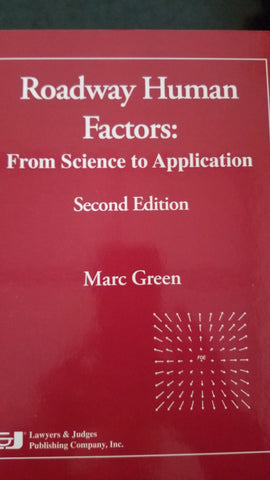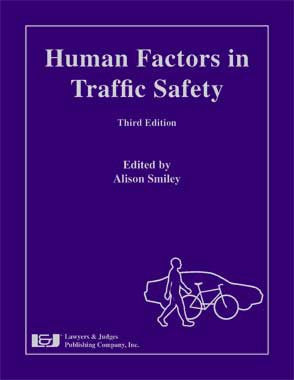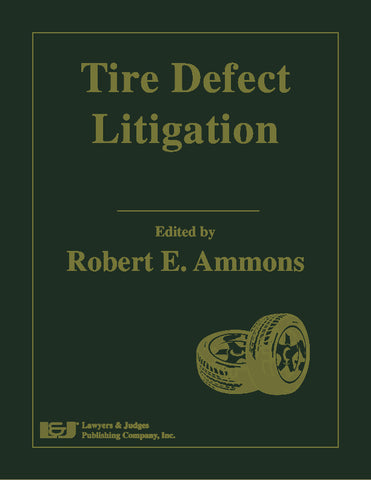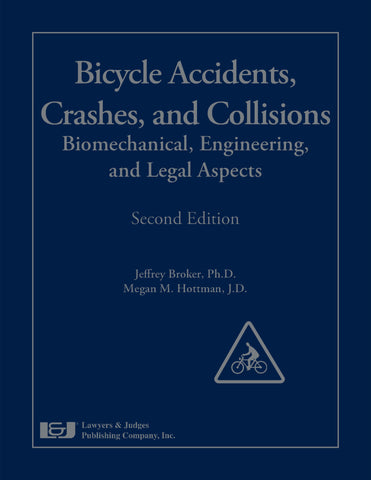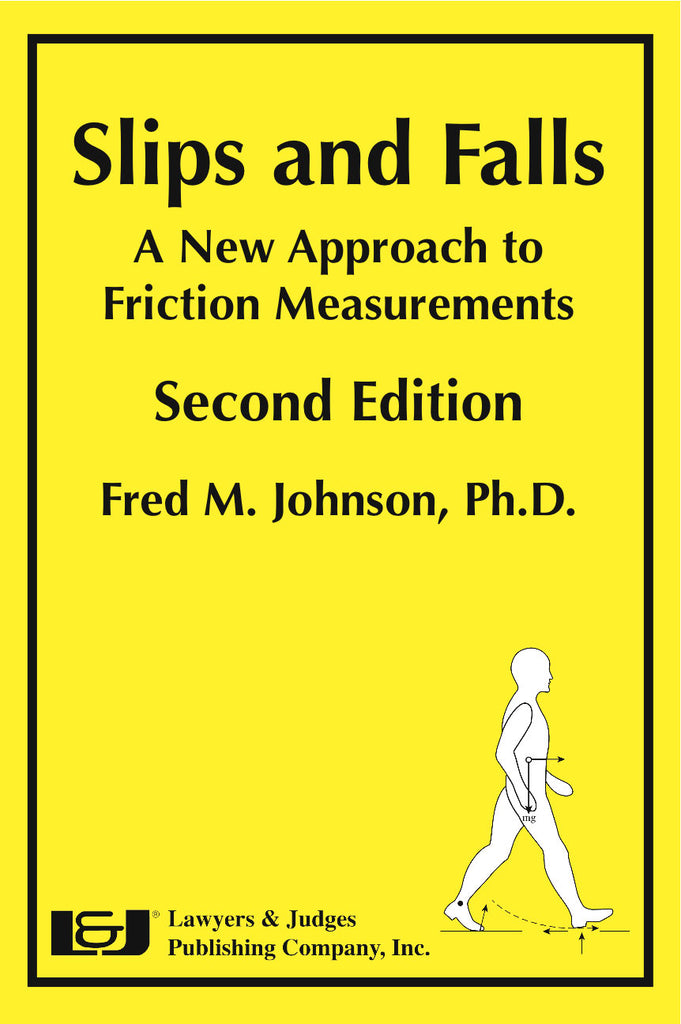
Slips and Falls: A New Approach to Friction Measurements, Second Edition
- Author: Fred M. Johnson, Ph.D.
- ISBN-10: 1-936360-71-3
- ISBN-13: 978-1-936360-71-0
- Copyright Date Ed: January 29, 2019
- Pages: 128
- Binding Information: Softcover
- Product Dimensions: 6 x 9 inches (US)
Slips and Falls: A New Approach to Friction Measurements, Second Edition is an explanation of the physics topic of friction and its relation to slips and falls. As well as slipping phenomena, other important and relevant friction related concepts and applications are presented to clearly guide you through this complex topic. This book explains the use of equipment such as tribometers in measuring friction and their level of accuracy. It explains other measuring techniques used and assumptions that come up when working with friction in fall cases, and shows which ones are erroneous and which are valid. It also discusses other aspects that apply to the physics of friction in slip and fall accidents, and gives you a back-to-basics understanding of the physics of friction. It is a great companion volume to Slips, Trips, Missteps and Their Consequences. It is an essential book and a call to action for any professional currently involved in the investigation, research and litigation of slip and fall incidents.
Topics Include:
- Introduction of Friction
- Pedestrian slip and fall
- Friction parameters
- Adhesion
- Forces and energy
- Traction demand
- Human gait
- Coefficients of friction
- Heel strike
- Push-off
- Slip hazards
- Measurement methodology
- Measurement technology
- Measurement techniques
- Lab facilities for friction measurement
- And more!
Table of Contents:
Dedication
Preface to the Second Edition
Preface to the First Edition
Introduction
Chapter 1: An Introduction to Friction (Force and Energy Concepts)
1.1 Historical
1.2 Pedestrian Slip and Fall
The Variance Dilemma
1.3 Basics
1.4 Friction Parameters
1.5 Adhesion
1.6 Preliminary Conclusion
1.7 Some Preliminary Remarks About Physics in General
1.8 An Introduction to Forces and Energy
1.9 Energy Transformations
Chapter 2: Worked Examples
2.1 Pinned Against the Wall
2.2 The Inclined Plane
2.3 The Simulated Heel Strike (Over-simplified)
2.4 The Amusement Park Rotor
2.5 The Wheelchair Slip-Out
2.6 The Ladder
2.7 Rubber Gloves
2.8 Tire Tracks, Panic Stops, and COF
2.9 Forensic Case Examples
Chapter 3: Human Gait and Traction Demand
3.1 Method One—Stick Figure Model
3.2 Criticism of Method One
3.3 Method Two
Chapter 4: The Multivariational COF Results
4.1 1991 Comparison Studies
4.2 Potential Impact Device Fallacies (A Preliminary Assessment)
Chapter 5: Force Plate Tribometer Measurements (at CSUF)
Chapter 6: Human Gait Analysis
6.1 The Heel Strike
6.2 The Push-Off
6.3 Slip Hazard
Chapter 7: The New Friction Measurement Methodology
7.1 The Struggle for Simplicity and Unambiguity
7.2 Research
Output Linearity Determination
7.3 The (Shoe) Sensor Criteria and Other GS-1 Discoveries
7.4 New Discoveries Based on GS-1 Test Results
7.5 The RAMP Friction Problem (Identified & Solved)
7.6 Conclusion to the RAMP Friction Problem
7.7 The SCOF vs. DCOF Debate
7.8 The Contaminant Issue
7.9 Friction Standards
Chapter 8: Concluding Remarks: Designation of Friction Experts
Appendix A: Standards
Appendix B: Solution to the Wheelchair Friction Challenge
Appendix C: The Hazard of Walking on an Inclined Roof Surface
Appendix D: The Roof-Ladder Descent Dilemma
D.1 The Roof-Ladder Descent Dilemma (RLDD)
D.2 The RLDD Analysis
D.3 The Mathematical Analysis of the RLDD
Criticism of Calculation
Bibliography
About the Author
Index

